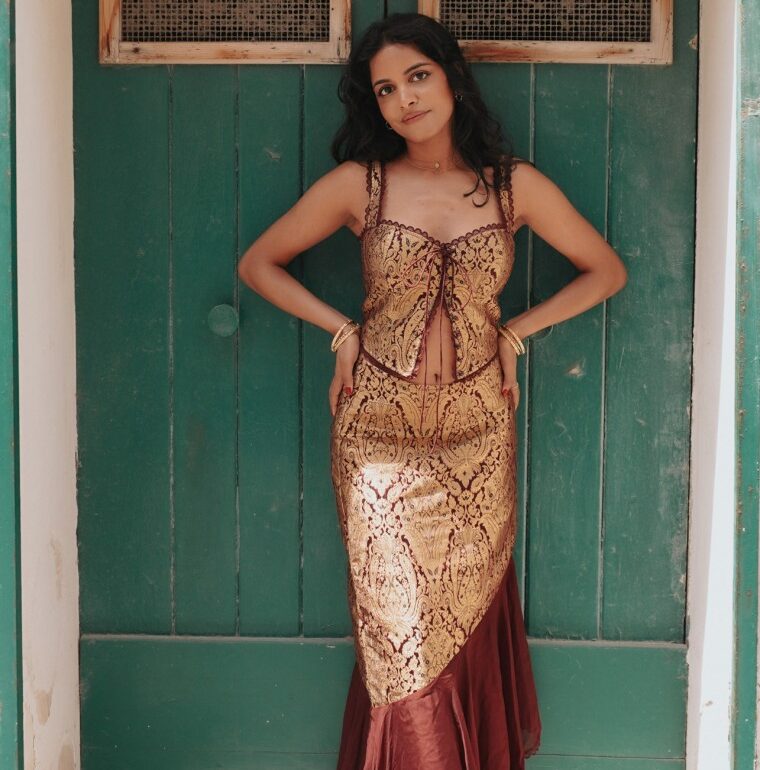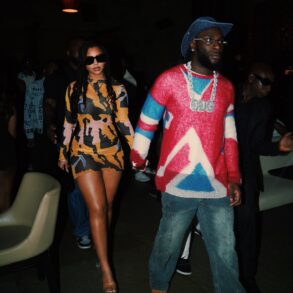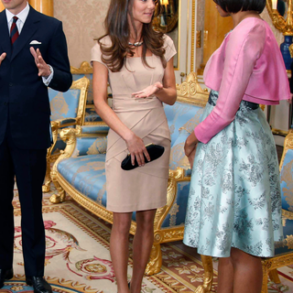South Asian clothing and accessories have been in the spotlight this week at the second South Asian New York Fashion Week, highlighting how styles from the region are both influencing and embracing current trends.
From textiles and patterns to beading and silhouettes, South Asian fashion has been impactful in the industry for centuries. Designers are now drawing further inspiration from the subcontinent, using brocade silk in Y2K and cottage-core trends, and tapping into the widely used draped silhouette of saris. The pieces are showcased at the New York City event running Sept. 9 through Sept. 13, in parallel to most of the New York Fashion Week.
Lenghas, the two-piece Indian formal outfits that include floor-length skirts and cropped shirts, have also made their mark on crop tops and two-piece gowns, said Hetal Patel, co-founder of the event.
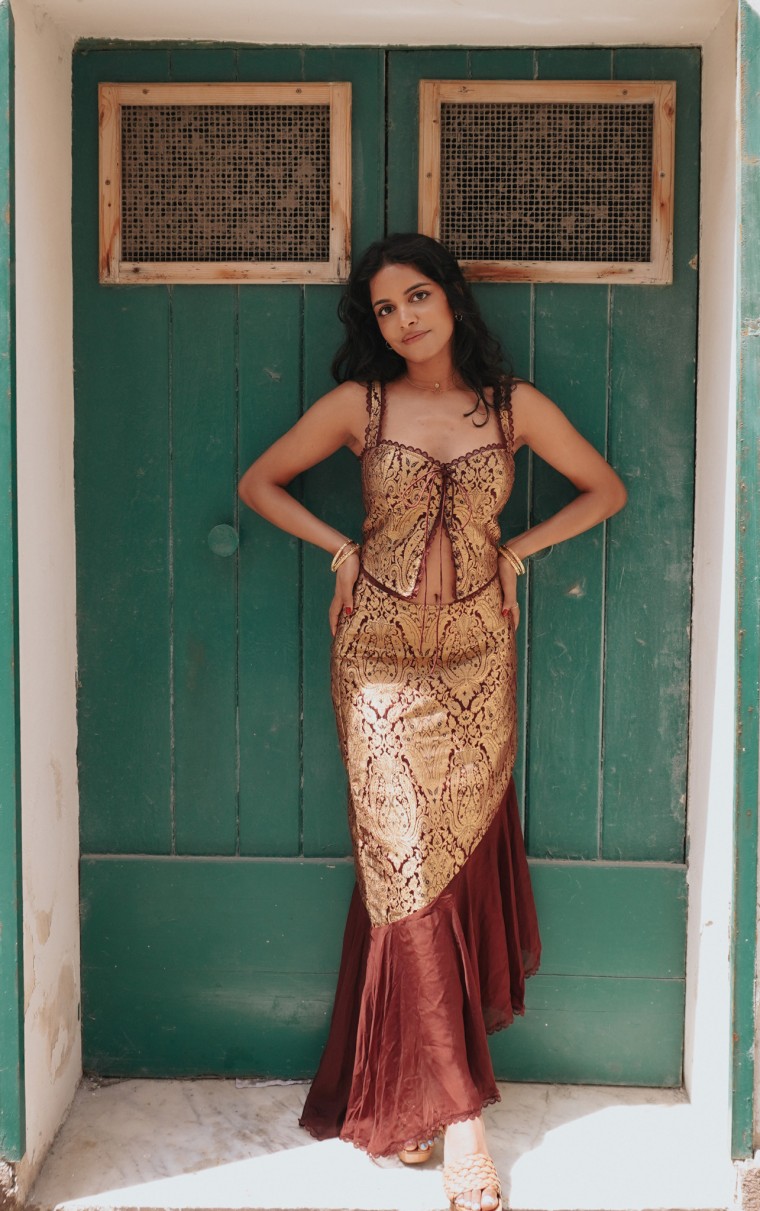
“For a long time, the industry would take that inspiration, and a lot of major fashion brands would call it something else,” she said. “They would put it in the mainstream market, and everyone’s wearing it, but no one has the education and the knowledge that a lot of these inspirations for many centuries … stem from different parts of South Asia.”
Shipra Sharma, also co-founder of South Asian Fashion Week, pointed to materials like raw silk and chiffon-crepe that are used globally but gained popularity in South Asian designs. The region also pioneered specific patterns like paisleys and tie-dye embroidered designs called bandhani.
“So much of these aspects are South Asian-inspired,” Sharma said. “All of these elements — the due credit wasn’t given to the community.”
Sheel Yerneni, the founder and designer of Svarini, said her collection was an amalgamation of her identity as a Gen Z and a South Asian woman. She said she leaned into the current fashion trends from platforms like TikTok while also bringing in popular couture fabrics and patterns.
“It is a blend of all of my heritages. It’s very much royal-core and cottage-core — that Bridgerton aesthetic that I love,” Yerneni, who was raised in Houston, said. “When I was getting the prints for this collection and designing, I was very specific about having traditional prints and designs.”
One of her favorite aesthetics is the early 2000s and Y2K, which inspired her low-cut skirts and some of her corset-styled tops, but said she wanted to create a collection that spoke to all younger South Asian women.
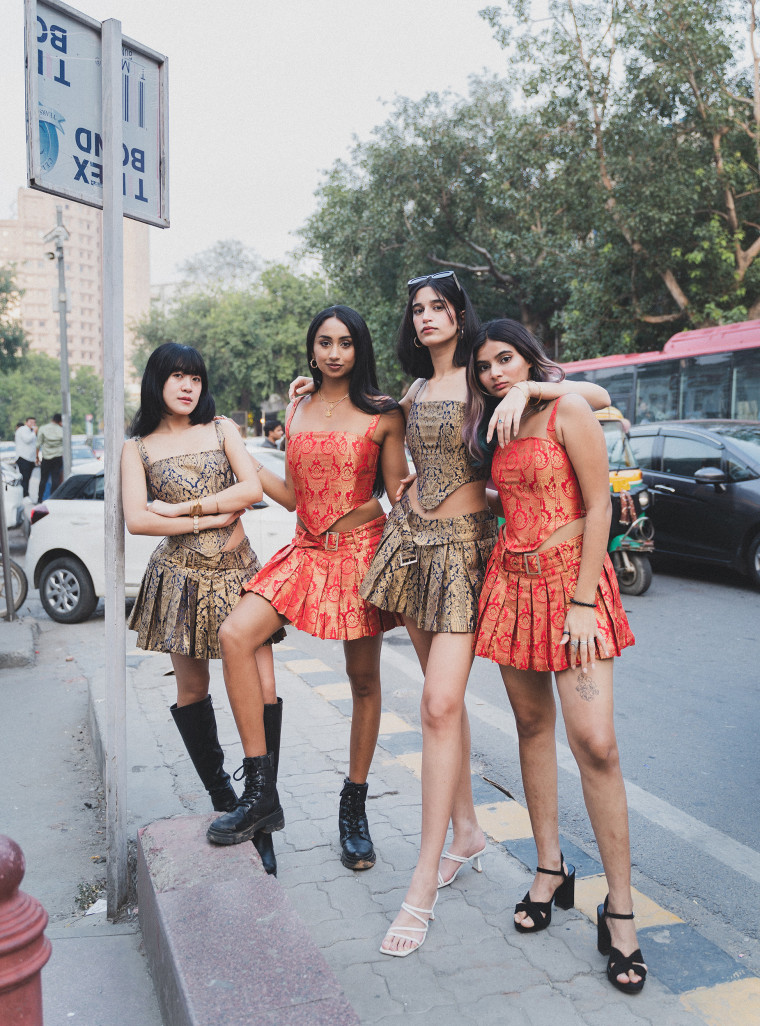



With the rise of microtrends and the speed they gain traction, she understands why there aren’t as many collections leaning into those styles.
“The collection is inspired by brown girls,” she said. “I had all these fun aesthetics to pull from that I feel like Indo-Western wasn’t really tapping into.”
Yerneni, 24, said the traditional prints achieved by fabrics like brocade silk often look very regal, which some misidentify as European. While she is grateful for the compliments on the textiles, she said it’s important to remember that designers sought these supplies from the subcontinent for centuries.
“I was traveling in Europe, and this woman in Barcelona stopped us on the street when we were shooting (for the collection), and I told her it was an Indian fabric,” she said. “And she was like, ‘Wow, I actually would have thought it was European. It looks very royal, old European.’ And I was like, ‘I wonder where they got that?'”
Other designers also curated collections that embodied a blend of South Asian design and Western trends.
Promiti Prosun, the founder and designer of Chaa Latte, showcased her pieces in the “Payal Collection.” Prosun bordered dresses and blazers with payals, which are ornate Indian-style silver anklets that jingle.
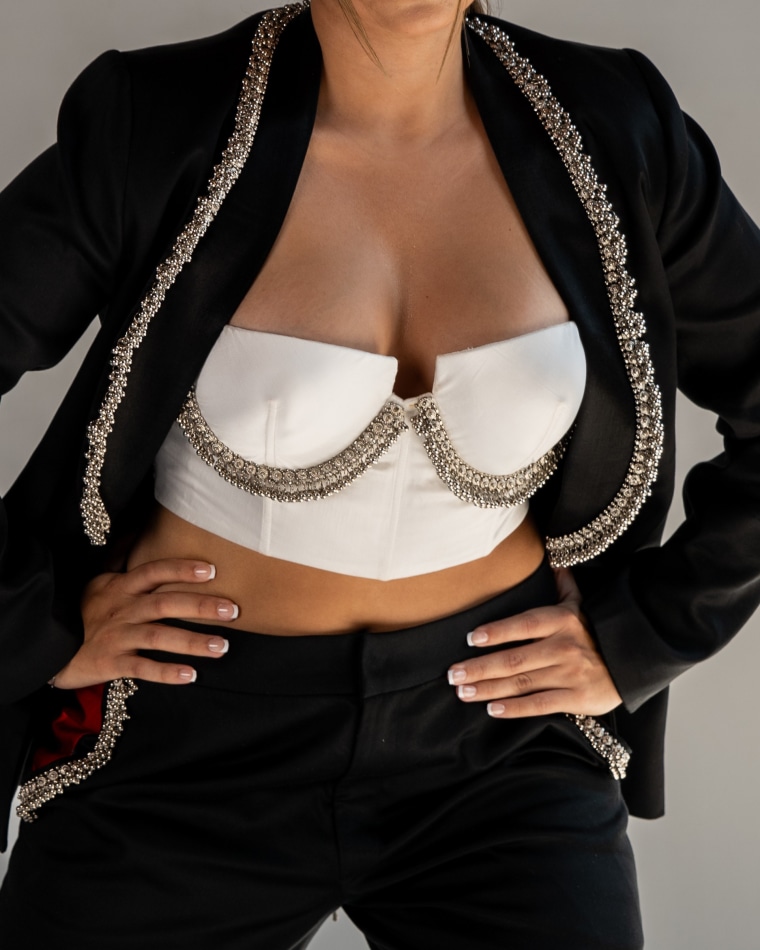



“I wanted to craft a story of femininity and a woman’s power,” Prosun, 35, said. “Each piece is a statement piece to give you the confidence to be heard and seen wherever you are.”
She said her goal is to elevate Western styles with traditional South Asian details, which she does with sleek power suits, tops and dresses adorned with silver bells that give off a soft jingle — a subdued version of the anklet as it moves.
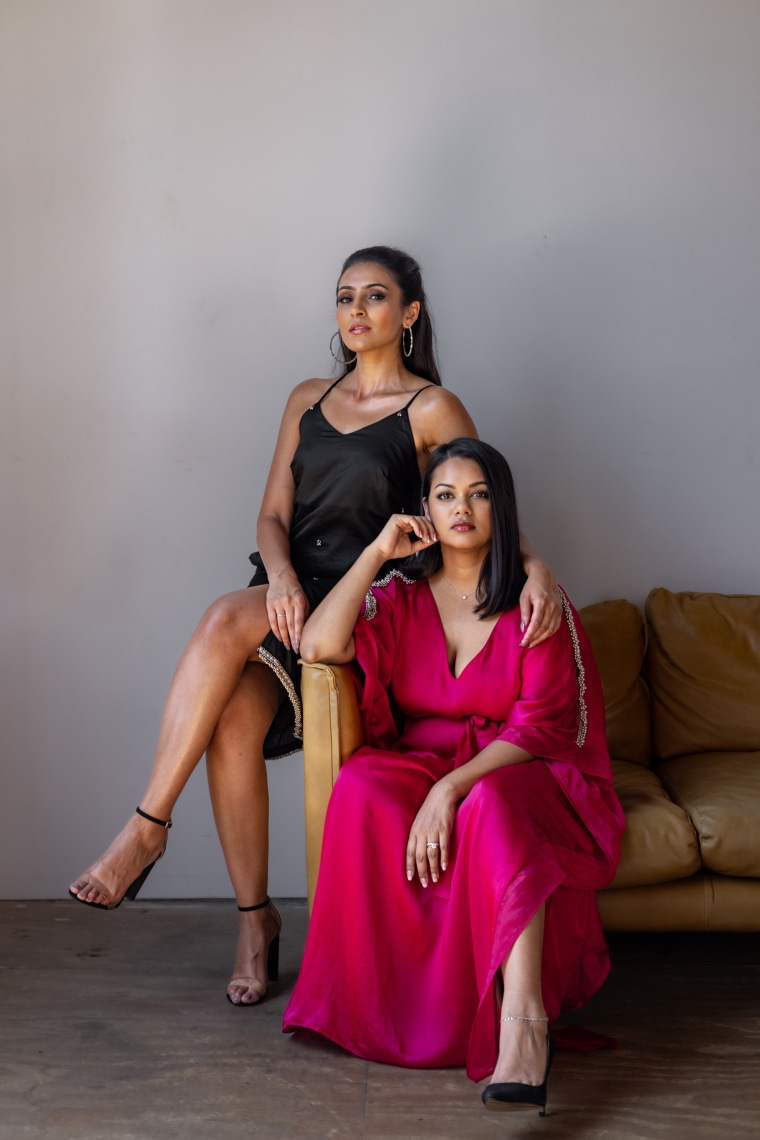



For Prosun, who is Bangladeshi, her inspiration came from her cultural identity but also from her signature blazer pantsuit.
“South Asian fashion has become synonymous with extravagance, loud colors and glitz, but I think there is so much beauty in the laborious and often subtle techniques from our fashion, so I always love working with minimalist looks but detailed beautifully with quintessentially South Asian techniques,” she said.
This post was originally published on this site be sure to check out more of their content.




